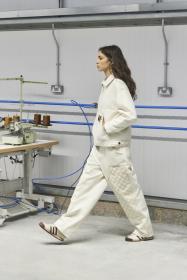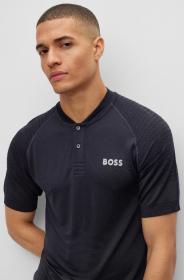Freudenberg: Sustainable microfiber solution for artificial leather applications
Freudenberg Performance Materials (Freudenberg) will be presenting new applications for its European environmentally-friendly Evolon® microfiber technology for Fall/Winter 24/25 fashion and leather goods collections at Lineapelle, from September 19-21. These include solutions for artificial leather applications suitable for the shoe, furniture and automotive industries.
Evolon® sustainable microfiber coating substrates
Evolon® microfiber fabrics are ideal coating substrates for artificial leather applications in the shoe, furniture and car industries. They are particularly suitable as a carrier material for PU and PVC coatings. Evolon® microfiber materials have non-fraying edges, which makes converting easier and quicker. They contain 80% recycled PET from Freudenberg’s in-house bottle recycling plant. Furthermore, they are manufactured with no solvent and no chemical binder in the company’s Evolon® plant located in Colmar, France. The plant is accredited according to OEKO-TEX STeP sustainability manufacturing certification and the DETOX TO ZERO criteria. European manufacturing offers logistic benefits to European customers through shorter supply chain and transport routes.
Reinforcement material for leather goods
Manufacturers of leather goods also benefit from Evolon® microfiber when they use it as a reinforcement material for original leather. It is drapable and soft and provides optimal shaping support for leather. In addition, Evolon® materials offer important sustainability advantages for the manufacturing of luxury leather bags, such as being 100% made in Europe, eco-friendly and socially-responsible production, and the use of recycled raw materials.
Freudenberg Freudenberg Performance Materials Lineapelle artificial leathers Leather
Freudenberg Performance Materials Holding GmbH































